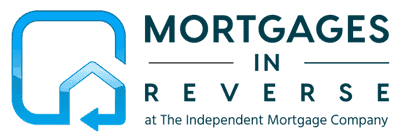Have you ever considered the potential of your home equity in Vancouver? As you age, you may find that a reverse mortgage is a viable option to unlock your home's value while still residing in it.
It's a complex financial tool with both benefits and drawbacks. However, with the right information, you can make an informed decision on whether it's the right choice for your financial future.
Let's explore this intriguing possibility further.
Key Takeaways
- Reverse mortgages in Vancouver offer a method to tap into home equity, providing a tax-free boost to retirement income.
- Eligibility for reverse mortgages involves being over 55, owning the home outright and using it as the primary residence.
- While reverse mortgages provide steady retirement income, they also come with potential risks like erosion of home equity over time.
- Understanding Vancouver's housing market trends is paramount in assessing the potential and risks of reverse mortgages.
Understanding Home Equity in Vancouver
To fully grasp the concept of reverse mortgages in Vancouver, you need to first understand the intricacies of home equity, which is essentially the market value of your home minus any outstanding mortgage payments. In simpler terms, home equity is the portion of your property that you truly own outright.
Equity valuation methods play a crucial role in determining this worth. The two primary approaches are the cost approach, looking at what it would cost to rebuild your home today, and the comparative approach, considering similar properties' prices in your area. Vancouver's housing market, known for its volatility, can significantly impact these valuations, and thus your home equity.
While Vancouver's housing market has seen substantial growth over the years, it's also experienced periods of sharp decline. This fluctuation can affect your home's market value, influencing your equity. As such, it's essential to keep an eye on these market trends, as they directly impact your potential for a reverse mortgage.
In short, understanding home equity and how it's influenced by equity valuation methods and Vancouver's housing market is the first step to comprehending the complexities of reverse mortgages.
Basics of Reverse Mortgages
Diving into the basics of reverse mortgages, you'll discover that it's a financial tool allowing homeowners, typically seniors, to tap into their home's equity without having to sell or move out. A reverse mortgage is a loan that you don't have to pay back as long as you're living in your home. It's payable only when you sell, move out, or pass away.
Here's a simple table breaking down the Eligibility Criteria and dispelling some Reverse Mortgage Myths:
| Eligibility Criteria | Truth | Reverse Mortgage Myths |
|---|---|---|
| Age 55 or older | ✔ | Only for the desperate |
| Own your home | ✔ | You'll lose your home |
| Live in your home | ✔ | It's too expensive |
| Financial assessment | ✔ | Not a safe option |
| Canadian citizen | ✔ | You'll owe more than your home's worth |
You must meet these criteria to qualify for a reverse mortgage. Despite common misconceptions, it's not a last resort option. You won't lose your home unless you fail to meet your loan obligations, and it's not more expensive than other loans. It's a secure way to access your home equity, and you'll never owe more than your home's value. That's a guarantee.
Benefits of Reverse Mortgages
Unleashing the potential of reverse mortgages, you'll find a myriad of benefits that amplify your financial stability and freedom in retirement. These benefits act as a powerful tool for retirement planning, allowing you to leverage the equity in your home to supplement your income.
- No Monthly Payments: Unlike conventional mortgages, you're not required to make monthly payments on a reverse mortgage. You only repay the loan when you sell your home, move out permanently, or pass away.
- Tax-Free Income: The proceeds from a reverse mortgage aren't considered income, hence, there are no tax implications. This means that the money you receive is entirely tax-free, providing a significant boost to your retirement income.
- Flexible Funds: The funds from a reverse mortgage can be used for anything. You can use it to pay off debts, cover health care costs, or even fund a well-deserved vacation.
Reverse Mortgages: Pros and Cons
While reverse mortgages can be a valuable financial tool, it's essential to weigh both the advantages and drawbacks before making a decision. On the upside, these loans provide a steady stream of income, particularly for retirees who've paid off their homes. They're an appealing option if you've met the eligibility criteria, including age and home equity requirements.
However, there are reverse mortgage risks to consider. These loans can erode your home equity over time, leaving less wealth for your heirs. You're also still responsible for home maintenance, insurance, and property taxes, which could strain your budget. Furthermore, if you decide to sell your home or move out, the loan becomes due, potentially forcing you into a sale under unfavorable conditions.
In the event of your death, your heirs would have to pay off the loan, usually by selling the house. If the home's value has dropped, they might owe more than the house is worth.
Applying for a Reverse Mortgage in Vancouver
Having understood the potential benefits and drawbacks of reverse mortgages, you might be considering one as a financial solution in Vancouver. The first step in this journey is understanding the Eligibility Criteria. Primarily, you need to be above the age of 55, own your home outright, and it must be your primary residence.
Next, you'll need to select from a range of Mortgage Providers. The major banks, specialized lenders, and credit unions in Vancouver offer reverse mortgages, each with their unique terms and rates.
To help you visualize, here are the steps you'll typically follow:
- Determining your eligibility and the amount you can borrow, primarily based on your age, property's value, and location
- Choosing a Mortgage Provider that offers favourable terms that align with your financial goals
- Meeting with a financial advisor or legal professional to ensure you fully understand the implications and terms of the reverse mortgage
Frequently Asked Questions
What Are the Tax Implications of a Reverse Mortgage in Vancouver?
In Vancouver, reverse mortgages can have certain tax implications. They aren't tax-deductible until they're paid off. This means you can't claim tax deduction possibilities annually.
Additionally, the mortgage interest impact increases over time, as interest isn't paid until the loan is due. However, it's important to consult with a tax professional to fully understand the potential tax implications of a reverse mortgage in your specific situation.
How Will a Reverse Mortgage Affect My Beneficiaries or Estate in Vancouver?
A reverse mortgage can significantly impact your estate planning in Vancouver. It's important to understand that it could reduce the value of your estate, affecting your beneficiary rights.
When you pass away, your heirs will have to repay the loan. If they can't, they might have to sell the home. You must weigh the benefits of immediate cash flow against the potential risks to your beneficiaries.
Consult with a financial advisor for a detailed analysis.
Can I Apply for a Reverse Mortgage if I Have an Existing Mortgage on My Home in Vancouver?
Yes, you can apply for a reverse mortgage even if you have an existing mortgage on your Vancouver home. However, the qualification criteria demand that any outstanding loans secured by your home must be paid off first. This can be done using the funds from your reverse mortgage.
The repayment mechanisms only kick in when you sell your home, move out permanently, or pass away. It's essential to understand these details before proceeding.
Are There Other Ways to Unlock Home Equity in Vancouver Outside of a Reverse Mortgage?
Absolutely, there are other methods to unlock home equity in Vancouver besides a reverse mortgage.
You could consider an Equity Line of Credit, which allows you to borrow against your home's value.
Alternatively, home refinancing options might be a good fit. They can help you obtain a new mortgage, potentially with better terms.
It's essential to carefully evaluate these options to ensure they meet your financial needs.
What Happens if the Value of My Home Decreases After I've Taken Out a Reverse Mortgage in Vancouver?
If the value of your home decreases after you've taken out a reverse mortgage in Vancouver, don't panic. Equity Protection Strategies act as a safety net. They ensure you'll never owe more than your home's worth. Even if the market sinks, you're protected.
When it's time for reverse mortgage repayment, you can't be forced to pay more than the home's sale price. It's a smart way to unlock equity without the fear of market fluctuations.

